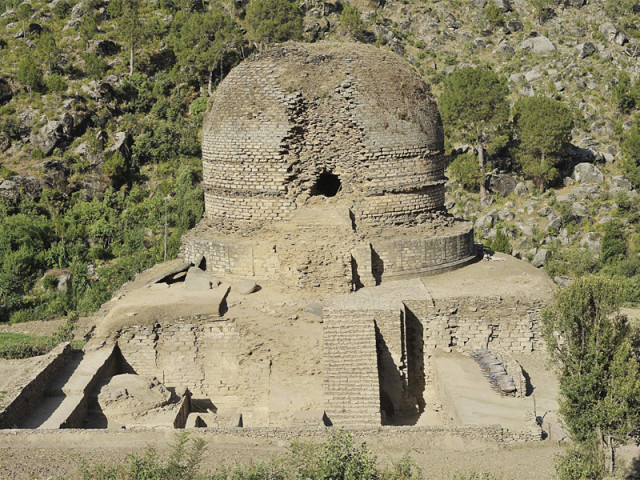Hidden treasures
A nation unable or unwilling to embrace its past is a lost one. We must take pride in our history.

Striking new discoveries have been made at the Gandhara civilisation site of Amluk-Dara in Swat, which dates back to the third century and had first been uncovered by British-Hungarian explorer Sir Aurel Stein in 1926, who found a well-preserved stupa located at the site. Now, an entire complex lying around the stupa has been uncovered jointly by an Italian archaeological mission visiting Pakistan and Khyber-Pakhtunkhwa’s Directorate of Archaeology and Museums. The site lies two kilometres from the main road, which travels from Barikot to Buner, protected by the Elum mountain. The site had been studied again in the 1960s and 1970s by foreign experts but no attempt was made locally since then to discover what lay there.
This complacency is a reflection of a much broader attitude. We make no effort to inculcate pride in our ancient heritage through school curricula, the media or other means. The warped ideological notions we have adopted, most markedly through the 1980s, mean we would, perhaps, like to forget that such a past exists. This is unforgivable. We must take pride in our history with all its various dimensions. A nation unable or unwilling to embrace its past is a lost one; we have lost a great deal already by doing away with huge chunks of our history and failing to embrace our heritage. Much of what lay in places like Swat has been deliberately destroyed. We must do what we can to hold on to what remains and raise awareness of this towards minds altered by years of propagandist teaching.
Published in The Express Tribune, August 15th, 2012.














COMMENTS
Comments are moderated and generally will be posted if they are on-topic and not abusive.
For more information, please see our Comments FAQ